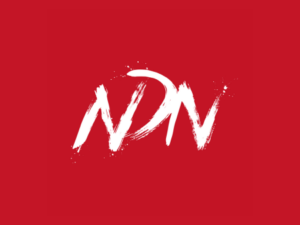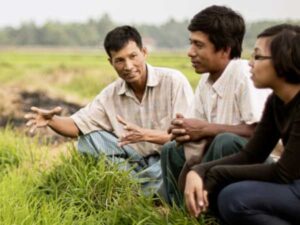The Global Steering Group for Impact Investment is catalyzing impact investment and entrepreneurship to benefit people and the planet. It is a global network of networks, seeking to drive a paradigm shift where impact is prioritized alongside financial risk and return.
Alasdair Maclay of Global Steering Group for Impact Investment spoke with Divya Manocha on January 19, 2024. Click here to read the full conversation with insights highlighted.
Divya Manocha: Could you please introduce yourself and describe the problem that you and your organization are addressing and how you’re responding to it?
Alasdair Maclay: I’m Alasdair Maclay, the Chief Strategy Officer at Global Steering Group for Impact Investment (GSG). Fundamentally, we are trying to reshape capitalism by putting impact at the heart of all resource allocation decisions made by investors, governments, businesses, entrepreneurs, and consumers. We want to deliver better outcomes for people and planet around social equity and environmental sustainability by advancing impact investment, and creating a paradigm shift in how more private capital is mobilized for public good. One example of that mobilization would be channeling more capital to social entrepreneurs all over the world.
But for us, that shift has to be rooted around measurement and management of impact, and creating a system of integrity and transparency. We also focus on what we call “impact infrastructure,” which is the underlying mechanisms that enable capital to flow to where it’s most needed. So really, building a global impact ecosystem – what we call the “impact economy” – is at the heart of all our work.
Divya Manocha: What makes your approach distinctive compared to other impact investing agencies and organizations worldwide?
Alasdair Maclay: Everything we do is underpinned by our global community. We’ve now spent 10 years building an on-the-ground network of national partners across nearly 50 countries. They’re really the heart of what we are, and what gives us an edge, because any idea we put forward is rooted in their input and feedback. We’re also able to advance opportunities by implementing them on the ground through those national partners. It’s a very effective network that gives us the credibility to do what we do, and sets us apart.
Another thing that distinguishes us from other impact agencies is our longevity. We have been around now for over 10 years, which has allowed for some deeply-rooted relationships with big strategic partners like The Skoll Foundation, G20, G7, and the United Nations Development Program. So we’ve got both underpinning on the ground, and access to big global decision-makers, which makes us quite unique.
Divya Manocha: How do you maintain partnerships with governments?
Alasdair Maclay: Each of our national advisory boards is constructed of those who are in need of impact capital, like entrepreneurs and companies, but also of suppliers of capital, like financiers and governments. So we often have good connections to government decision-makers and regulators through our national advisory boards. But the types of people who lead these organizations tend to be well-connected locally and have pre-existing access corridors, so the government is seen as a sort of partner from the beginning.
For example, one of our projects is funded by the British government’s Foreign, Commonwealth and Development Office, so they are able to connect us to their counterparts in other countries. We’re able to leverage our networks very well to advocate for a particular outcome.
Sana Jatoi: To provide some more examples: we are also working with the Central Bank of Zambia to develop a vehicle to support SME [Small and Medium Enterprises] finance. That’s a very hands-on, direct governmental partnership. And our national advisory board in Japan has also been very influential in engaging with the government, to the extent that the Prime Minister of Japan has declared impact investment to be part of the country’s new capitalism policy. They’ve also launched a G7 impact investing initiative for global health.
Divya Manocha: Do you have an example that illustrates the impact of your work?
Alasdair Maclay: The outcome we look for is when capital is raised is to drive better outcomes for social equity or environmental sustainability, so the ultimate test is whether or not that capital is deployed effectively. In Ghana, for example, we’ve been working with our national partner on designing new funds that will raise capital to finance SME entrepreneurs in West Africa. We have been working with banks and investors to design the right financial instrument and introduce catalytic capital that will lower the risk in order to attract private capital, not just from foreign investors, but from local pension funds.
These pension funds have only been investing in treasury bonds. But now this pioneering new instrument will attract money from different countries and from within Ghana into a fund which is structured in a way that will both earn an optimal risk and return, and drive better outcomes to a really important issue, which is the lack of finance for SMEs in West Africa.
We’re particularly interested in SME finance in Africa, because when an SME is doing well and the owner is able to support 20 or 30 family members, this drives positive outcomes, but finance for SMEs was one the areas hit the worst after COVID. So several of the vehicles we’ve been looking at in Nigeria, Ghana, and Zambia are specifically designed to address the lack of funding for SMEs to get the sector back in strong shape. Our colleagues in India are doing something similar.
But not everything is in emerging markets. In Spain, our colleagues have launched a new impact fund in partnership with the government that we call a “wholesaler.” The idea is that you bring in the capital at the top and then allocate it to smaller funds, so that small businesses are able to receive funding. Together with our colleagues in each country, our work has been to design the funds and move them into action.
It’s more difficult to see the consequences of impact transparency, which is the need to have a more clear and standardized metric around the world in order to help capital flow towards impact. However, everyone knows that better measurements of impact will help investors make better decisions. So we’ve been working hard to support the adoption of impact standards in a number of countries, with the ISSB [International Sustainability Standards Board] serving as the standards setters.
Another example is that our UK partner, the Impact Investing Institute, has launched the Just Transition Challenge, establishing a clear metric of what constitutes an investment promoting a transition towards net zero and social equity. A huge number of big asset managers are now using this framework to ensure money goes to a positive, impact-oriented outcome.
Divya Manocha: How do you measure your own success?
Alasdair Maclay: Each aspect of our work has its own measurements. One of our key metrics is actually the size of the impact investment market, which has been growing 25 to 30% per annum. We can’t take all the credit for that positive story, but we do believe we have played a key role in measuring that.
SME finance is primarily measured on the volume of capital deployed into SME funds, although the individual SME funds then have much more specific job creation targets. We have a theory of change, and we know that if we can get capital flowing into the right places, then we defer some of that success-measuring detail to the underlying funds, because we trust our own theory. We care massively about final outcomes, but we have to understand our mission is to get vehicles operating effectively before we can assess progress.
Sana Jatoi: A challenge in doing systems change work is that it’s not easy to quantify the exact number of people benefiting per impact investment. But one metric of success is just the expansion of our ecosystem and our community of national partners. That’s a very real benchmark for what we’ve been able to achieve. Another measurement of success is our expansion in a lot of emerging, frontier markets and developing countries. We’re making really strong progress on that front.
Divya Manocha: Can you share any insights or teachable lessons you’ve learned through your work?
Alasdair Maclay: The first insight is that social entrepreneurs are at the heart of the success of an economy. Those who are running small businesses or impact-oriented new businesses represent something like 80 to 90% of many countries’ economies. If we can’t deliver capital to these social entrepreneurs, then the economy of that country has no chance. So for us – and certainly for Skoll Foundation as well – we really focus on this area.
The second insight is that this is hard work, but it’s worth doing. Governments and investors have to design instruments in order to meet the supply and demand requirements of capital, and that’s painful and hard work, but someone has to do it. It’s worth it to mobilize capital for SMEs in a particular country, and we’re very grateful for all our partners who do that hard work with us.
The third insight is that it’s the emerging markets of developing countries that really need our collective help to deliver results. There’s underserved, underprivileged communities everywhere, but really it’s the poorer countries which have some of the biggest SDGs [Sustainable Development Goals] and social issues around employment and education. So that’s the piece of the global puzzle on which we’re choosing to focus our capital mobilization work, and where we’re encouraging others to focus theirs. In the next 30 years, the population of Africa will nearly double from 1.4 to 2.8 billion people, and the current unemployment rate in Africa is about 50%. That is such a huge global issue on which we have to focus.
One lesson learned is that impact is not political, but politics can affect the rate of impact. You may think you’re launching something important and positive, but then a new government comes into the country and doesn’t prioritize it. All around the world, our colleagues are trying to time their decisions for a favorable response from the government, because we’ve seen real setbacks in some countries where leadership hasn’t chosen to advance impact. Impact is essential for people and for the planet, but it’s at the risk of being accelerated or decelerated by political changes, and you have to be quite careful navigating that.
Sana Jatoi: One of our biggest insights is that the importance of market and infrastructure development and market building cannot be understated. It’s very important work. We often see a lot of support for impact initiatives that focus on a particular audience, or on frontline delivery, but all of this is possible because of market building efforts that have taken place.
Alasdair Maclay: Another lesson learned is that it takes a village. The impact market can be quite fragmented, but we are deliberately very inclusive and collaborative with our partners, because we’re all striving to move the world forward. That’s why we invite our colleagues – who really represent all of society and the economy – to come and discuss the way forward. Because the asset owners and the investors need to be in the room with the people whose lives are being affected by this work. That kind of collaboration is really important.
Divya Manocha: What does this collaboration look like?
Alasdair Maclay: We’re working on a project now called the Impact Investing Initiative for Global Health. We’re building a coalition of the willing – including investors, governments,and healthcare companies – to try and deliver better healthcare outcomes for people in the last mile in the Global South. By bringing the coalition together, they’re able to come up with better delivery solutions for people in the Global South that will probably be profitable solutions for the healthcare companies. And the governments and the UNDP [United Nations Development Programme] and others will be facilitating the delivery of those outcomes. So sharing ideas and best practices, and then making that information accessible is really at the heart of our work as an organization.
Divya Manocha: What challenges have you faced in your work?
Alasdair Maclay: We all faced COVID together. That was a big challenge for the impact movement because suddenly we had a humanitarian crisis that required a lot of short-term, immediate responses. By nature, impact work and raising capital for programs tends to require medium-term thinking. We’re often stuck solving short-term crises, and as a result aren’t necessarily able to put in place the underlying, impact-oriented systems which will make things better in the medium-to-long term. COVID really highlighted that challenge.
And again, there’s the politicization of impact. Sometimes politics holds us back in countries where the government has decided not to prioritize impact-oriented solutions for their people. It’s difficult to know how to overcome that barrier. You either have to wait for a change in leadership or else try to influence the thinking of the existing leadership.
Another barrier is accessing the funding that we need to be able to advance these ideas. A lot of our work is in partnership with governments and foundations like the Skoll Foundation, and we’re always very grateful for their support. Like any impact agency, we always have to make sure we secure enough funding to deliver on our mission.
Divya Manocha: How are you working to achieve systems level change?
Alasdair Maclay: The two areas we are most focused on are impact transparency and mobilizing capital to emerging markets, and both of those require system change.
For impact transparency, the system change we’re trying to achieve is for all investors to use the same standardized metrics for measuring their impacts and acting accordingly. We’re working on making sure those metrics are created with standard setters like the ISSB, and are relevant globally. Then we also need to see that companies act accordingly against those metrics. We’re working with regulators in countries to establish guidelines, so that if a company wants to receive Just Transition financing, then they have to report these metrics and follow a set of rules. Changing the detail of financial metrics and regulations is pure system change, which will result in more capital flowing to the right outcomes.
For mobilizing capital, we’re bringing system change through the creation of innovative, blended finance tools. We’re designing instruments which bring new ways of mitigating risk or leveraging public and private money to change the nature of an opportunity to attract more capital.
In Zambia, for example, the team has worked with the central bank on a first loss risk guarantee, which takes the initial risk off the fund for SMEs, catalyzing other money to flow in. This product didn’t exist two years ago, so this is a true system change. Without it, the money would not flow into the SME sector in the same way. We try to focus on the nitty gritty of the impact investment system, because that’s the area where we feel we can make a difference.
Divya Manocha: What can other partners do to help advance this kind of system level change?
Alasdair Maclay: Asset owners need to think responsibly about impact because ultimately they’re the ones controlling the capital. These big pension funds or sovereign wealth funds are the decision makers, but this money ultimately belongs to individual people: to the person paying the pension or to the citizens of the country. If you ask those individuals what they want to do with their money, they want it to be making a positive impact. So asset owners need to make sure they are respecting the desire of the people. That’s an interesting challenge for them because they’re accustomed to talking about financial risk and return, but now their customer wants them to talk about impact as well. Some of them are making great progress with these big funds in terms of optimizing for impact alongside risk and return, but there’s still quite a journey to go.
We need those ultimate asset owners to be confident and want to deliver those sorts of outcomes, so we need to make sure that the finance vehicles they use properly mitigate the risk.
Divya Manocha: How do you see your work evolving over the next five years?
Alasdair Maclay: I hope in five years time that we will have achieved that level of impact transparency we’re aspiring to, and that more investors will be motivated by impact so that our work will move more towards mobilizing capital on the ground, and we can move more from thinking to implementing. But the world will not be perfect in five years time, so we will still be continuing our work mostly around mobilizing capital to where it’s needed.
I hope those poorer countries will be significantly better off and showing better outcomes for their own people and for the environment. That’s the thrust of our work, and we’ll probably continue to focus on those small businesses that drive the economy in those geographies.
Divya Manocha: Is there anything we didn’t discuss that you’d like to add?
Alasdair Maclay: I would like to add that when we talk about GSG, we’re talking about a thousand people in 50 countries.The GSG core team is a group of about 20 people, but we’re always talking about our global network of colleagues. It’s absolutely a community effort.
Divya Manocha: Thank you so much for talking with me today.
Click here to read the full conversation with insights highlighted.
Divya Manocha has been a LEDE Fellow with the Solutions Journalism Network and is the founder of SoJourn, a bootcamp that brings together university students from around the world to produce solutions journalism. SoJourn has led to the publication of several stories which now feature on the Solutions Story Tracker alongside the work of Pulitzer Prize-winning journalists. Divya’s current work focuses on making assistive technology more accessible and using the power of play to drive civic engagement.
* This interview has been edited and condensed.
Learn about other organizations that provide social innovations in economics and investment.







